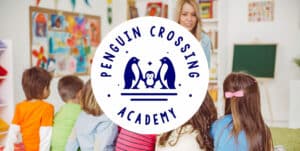Most parents know that reading to their children will benefit their future academics. However, new research indicates that math skills are more important than reading in predicting future academic success. In fact, experts are now advising that early math skills should take priority in early childhood classrooms over reading.
Here is what the research studies discovered about how math helps young children.
Math is the Best Predictor for Future Academic and Career Success
According to several studies, “Early math skills foretell higher aptitude in high school math and higher rates of college enrollment… [and for] both males and females, mathematical precocity early in life predicts later creative contributions and leadership in critical occupational roles.”
If you want to increase your child’s chances of college enrollment, creative contributions to society, and occupational leadership, then early math emphasis is essential.
Teaching Math in Early Childhood Improves Problem-Solving Skills
The purpose of math is to solve the equation. It only makes sense that methodically working through math problems improves your child’s problem-solving skills. The earlier children can solve math problems, the better they will be at math in school, and they will be able to solve everyday problems with ease.
Learning Math Skills Early in Childhood Develops Logic Skills

Dr. Jie-Qi (Jackie) Chen has said “Math is the language of logic.” Your child’s brain matures logically as it learns math because part of math is figuring out which is the best way to solve the equation. Children who learn math concepts early in life have a head start on analytical and logic skills.
Math Develops Flexible and Creative Thinking
Math promotes flexible thinking because equations can often be solved in more than one way. Using creative and flexible thinking at an early age strengthens the brain to perform more challenging mental tasks later.
Math Teaches Perseverance
Math geniuses aside, most of us struggled with math homework. While it’s important to get math answers correct, perhaps the greatest lesson we learn from math is perseverance. Math provides ample opportunity for frustration–but also a great personal satisfaction of accomplishment upon solving the equation. The earlier children learn perseverance, the more resilient they will be in the real world.
How Do I Start?
How do you start including math concepts in your child’s daily routine? This depends on your child’s age and current math skills. It’s also important to remember that while teaching numbers is essential to understanding math, math is more than numbers.
Some creative ways to incorporate math skills include:
- Sorting shapes and colors or other toys (e.g. cars from trains)
- Discuss weight, size, shape, and height differences between objects (e.g., the height difference between a house and a skyscraper, or the weight difference between a basketball and a baseball)
- Build visual literacy using Dulpos, LEGOs, or other blocks with geometric shapes
- Practice patterns through pattern games
- Strategically choose board or card games that include math, like Chutes and Ladders
- Put up various math-based posters, like a 100’s chart, number line, 2D and 3D shapes, analog clocks, and more.
Math Skills at Penguin Crossing Academy
Penguin Crossing Academy teaches many early childhood math skills, as well as providing math-centered games, puzzles, and toys that develop your child’s brain so they receive all the benefits of early math skills.
It can be hard to include your child’s math skills during a busy day. Thankfully, you can rest assured that your child receives age-appropriate and fun math skills at Penguin Crossing Academy.

Penguin Crossing Academy is proud to offer an outstanding curriculum that is educational, fun, and prepares your child for kindergarten per state educational standards.
If you’re looking to give your child a head start in school, contact Penguin Crossing Academy today!


